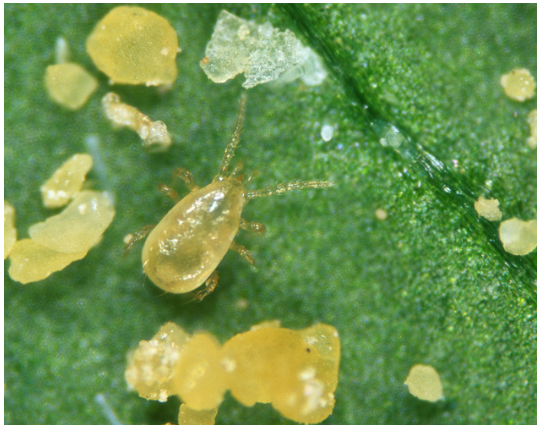Table of Contents:
Importance of Beneficial Insects
Beneficial Mites
Roles of Beneficial Bugs and Mites
Encouraging Beneficial Bugs and Mites
Challenges and Considerations
Conclusion
FAQ
Importance of Beneficial Bugs and Mites
Did you realize your garden may be a battlefield? Good news: some creatures fight on your side! Beneficial insects and mites are natural pest controllers. They contribute to healthy soil and support pollination. This article shows how to attract these tiny, hardworking helpers.
Beneficial Insects
These insects are good news for the garden ecosystem. They work as predators, parasites, as well as pollinators. Each has an important job to do.
- Predators - Think of lady beetles (ladybugs) or the fierce assassin bugs. The ladybug greedily eats aphids, scale insects, also other garden pests. The assassin bug, true to its name, targets caterpillars, grasshoppers, as well as a whole array of unwanted insects.
- Parasites - These insects target specific pests at the vulnerable stages of eggs, larvae, pupae, etc. An example? Trichogramma wasps are experts. These wasps lay their eggs inside moth and butterfly eggs. This method effectively controls codling moths and cabbage moths.
- Pollinators - Many beneficial insects do not pollinate. Bees or butterflies help transfer pollen. They move it from flower to flower. Beneficial insects also support pollination. They control plant-weakening pests. Healthy plants then produce more flowers. This offers more nectar, as well as pollen, for the pollinators.
Beneficial Mites
These tiny arachnids feed on other harmful mites, next to even tiny garden pests. Predatory mites are great because they control spider mites. Spider mites cause destruction to strawberries, cucumbers, in addition to other crops. These specialized mites give you a natural way of managing mite infestations. No chemical pesticides are needed.
Roles of Beneficial Bugs and Mites
- Pest Control - These are nature’s little pest control agents. They shrink pest populations, along with minimize the need to use chemical pesticides. This keeps your garden ecosystem balanced.
- Soil Health - Ground beetles help by breaking down organic matter. After that, they recycle nutrients. They add to the overall soil quality. Beneficial nematodes control garden soil pests. This makes sure that your plants grow with strong roots.
- Pollination Support - By simply controlling pests, you help pollination. Healthy plants then give out more flowers. That offers more nectar and pollen for the pollinators like bees, including butterflies.
Encouraging Beneficial Bugs and Mites
To welcome as well as support the insects and mites in your garden, consider these tips:
- Diverse Planting - Plant a variety of native plants. Offer nectar, pollen, or shelter. Native plants have grown together with the local insect community. They support an increased diversity.
- Avoid Chemical Pesticides - Insecticides harm beneficials. Try integrated pest management methods instead. These prefer natural controls.
- Provide Habitat - Make homes by adding rocks, native plants, as well as logs. Give shelter, also nesting sites, to these helpers.
- Maintain Soil Health - Enrich soil with compost, or mulch. A healthy soil encourages beneficial nematodes or insects that live there.
Challenges and Considerations
While helpful, there are some issues to reflect on:
- Ecological Balance - Introduction of non-native species disturbs local ecosystems. It is essential to support your area's native insects. Avoid the introduction of non-native insects.
- Habitat Loss - Urbanization or intensive agriculture destroys habitat. The loss affects these garden friends. Preserving existing natural habitats and forming friendly gardens helps. It decreases the problem.
Conclusion
These bugs or mites greatly help the garden ecosystem. If you learn what they do, next to how to support their presence, you garden more sustainably. Then it becomes more productive with decreased use of chemical sprays. This way, you are supporting biodiversity. This contributes to a resilient environment. It benefits not only your crops, but these insects also.
By including beneficial insects or mites into gardens, you create a sustainable path. You also support the environment. We face issues like global warming including losing species. Accepting these garden allies safeguards the health of the earth.
FAQ
What if I don't see beneficial insects in my garden?
You may need to attract them! Plant native flowers, reduce pesticide use, in addition to offer shelter. Patience is also something to remember, it sometimes takes time for beneficial populations to establish themselves.
Will beneficial insects eliminate all pests?
They help control, not remove all pests. A healthy garden ecosystem has some pests, along with these creatures help you maintain a balance.
Are ladybugs the best beneficial insect?
Ladybugs are excellent, yet many other types offer help. A variety of beneficial insects ensures pest control and garden health.

